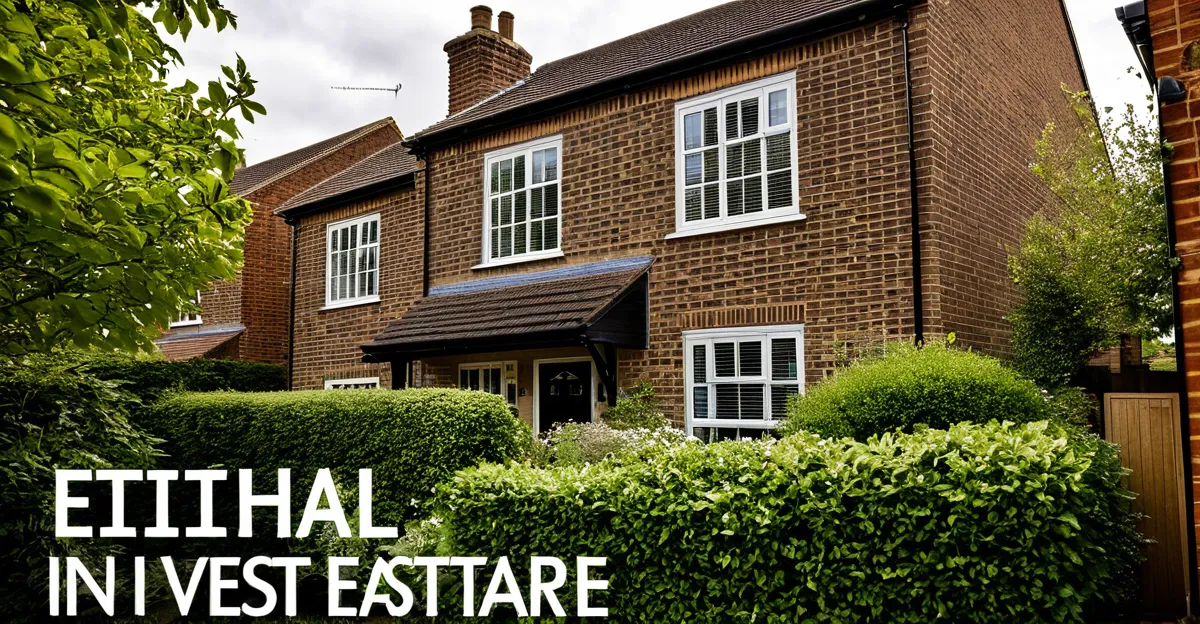Core Principles of Ethical Real Estate Investment in the UK
Ethical investment principles are foundational to cultivating trust and integrity within the UK property market. At its core, responsible real estate investing demands adherence to UK property ethics that prioritize transparency, honesty, and accountability throughout all stages of a transaction. This transparency is crucial not only for maintaining investor confidence but also for protecting tenant rights and ensuring fair dealings.
Balancing financial goals with social and environmental responsibilities presents a dynamic challenge for investors. Ethical standards encourage decision-making that considers long-term societal impacts alongside profitability. For example, investors embracing these principles may opt for sustainable building materials or support developments that enhance community welfare. By doing so, they align their financial objectives with a commitment to positive social outcomes and ecological stewardship.
Also to discover : How do economic changes influence the UK housing market?
Furthermore, ethical investment principles emphasize respect for all stakeholders involved — from tenants to local communities — fostering mutual benefit and long-lasting partnerships. This approach reflects a shift toward investment strategies that value well-being and fairness over short-term gains, providing a blueprint for ethical conduct in UK real estate.
Legal and Regulatory Compliance for Ethical Investors
Adhering to UK property laws is fundamental for investors committed to ethical investment principles. Compliance with legal frameworks such as the Anti-Money Laundering (AML) regulations ensures transparency and accountability in property transactions. AML laws require thorough verification of funds’ origins, thereby preventing illicit activities and promoting integrity within the real estate sector.
Also read : What are the key trends in UK real estate financing?
Property licensing and landlord obligations are equally critical components of UK property ethics. Legal compliance demands that investors maintain up-to-date licenses, provide safe living conditions, and fulfill tenant rights as outlined by relevant statutes. Responsible real estate investing involves not only respecting these rules but actively implementing standards that uphold tenants’ dignity and safety.
Moreover, anti-corruption measures serve as essential safeguards against unethical conduct. Investors must follow strict codes of conduct that prohibit bribery and fraud, preserving trust across all stakeholders. Failure to comply with these regulations can lead to severe consequences, including legal penalties and reputational damage, undermining long-term success.
In summary, investors practicing responsible real estate investing must navigate a complex landscape of investment regulations. Upholding legal compliance is indispensable for fostering ethical behaviour, securing stakeholder confidence, and contributing to a fair and transparent UK property market.
Fair Treatment of Tenants and Stakeholders
Ensuring tenant rights is a fundamental aspect of ethical investment principles in the UK property market. Fair housing practices require landlords and investors to promote equality, diversity, and non-discrimination during tenant selection. This means prohibiting any biases based on race, gender, disability, or other protected characteristics, fostering an inclusive environment where all applicants have equal opportunity.
Providing safe, healthy, and secure housing is another pillar of responsible real estate investing. Investors must comply with safety regulations and maintain properties to high standards. This includes regular inspections, timely repairs, and adequate facilities that support tenant well-being. Neglecting these duties not only violates UK property ethics but also undermines tenant trust and satisfaction.
Effective stakeholder engagement involves transparent, respectful communication with tenants and local communities. Keeping open channels ensures concerns are heard and addressed promptly, helping to build positive relationships. Ethical investors recognize that collaboration with stakeholders contributes to long-term success by balancing financial objectives with tenant welfare and community interests.
In sum, fair treatment of tenants and stakeholders reflects a commitment to both social responsibility and practical property management. Upholding these standards strengthens investor reputation and advances broader ethical goals in UK real estate.
Social and Environmental Responsibility in Property Investment
Ethical investment principles extend beyond immediate financial returns to embrace environmental responsibility and social impact within the UK property market. Responsible investors prioritise sustainable real estate development by choosing eco-friendly building materials, energy-efficient technologies, and designs that minimise carbon footprints. For instance, integrating solar panels or efficient insulation directly contributes to lower emissions and reduced utility costs, benefiting both investors and tenants.
Social impact investing within real estate focuses on enhancing community well-being. This involves supporting affordable housing initiatives and developments that improve access to essential services. By doing so, investors foster inclusive neighbourhoods and address pressing societal needs such as housing scarcity and social inequality. Ethical investment principles here guide investors to pursue projects that align financial success with positive social outcomes.
The long-term benefits of sustainable and socially responsible property investment are significant. They include increased tenant satisfaction, stronger community relations, and improved regulatory compliance, all of which reinforce investor reputation. When balancing social and environmental responsibilities with profitability, ethical investors help reshape the UK property sector toward a more resilient and equitable future.





